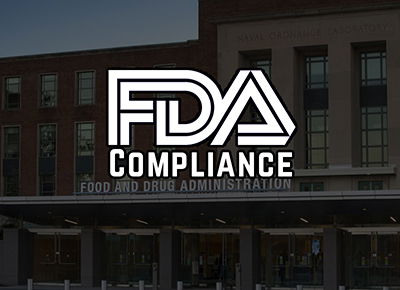How To Ace An FDA Meeting - Preparation And Conduct
🎤 Charles H. Paul | 📅 Recording Available | 🕒 90 Minutes
Description:
Acing an FDA meeting is a critical aspect of the drug development process, requiring meticulous preparation and effective conduct to navigate the regulatory landscape successfully. In the preparatory phase, sponsors must thoroughly understand the purpose of the meeting, whether it is a pre-IND (Investigational New Drug), pre-NDA (New Drug Application), or another type of meeting. Comprehensive research on FDA guidelines, regulations, and relevant documentation is essential. Sponsors should anticipate potential questions and concerns from the FDA and develop robust responses, ensuring they can address issues related to drug safety, efficacy, and manufacturing. Additionally, assembling a well-organized presentation that clearly communicates the product's profile, development plan, and risk management strategy is crucial. Successful preparation also involves rehearsing the presentation, considering potential challenges, and refining key messages to convey information effectively during the meeting.
During the FDA meeting, maintaining professionalism and transparency is paramount. Sponsors should begin with a concise and compelling overview of their product, emphasizing key data and addressing the FDA's specific areas of interest. Active engagement with FDA officials by attentively listening to their feedback, responding thoughtfully to questions, and acknowledging areas of uncertainty demonstrates a collaborative approach. Sponsors should be prepared to discuss the scientific rationale behind their development strategy, providing a clear understanding of the data and its implications. Additionally, fostering open communication and building a positive rapport with FDA representatives can contribute to a constructive and productive meeting. By demonstrating a commitment to compliance, data integrity, and a willingness to address concerns, sponsors can enhance their chances of a successful FDA meeting, paving the way for the advancement of their drug development program.
Learning Objectives:
- Participants will be able to distinguish between various FDA meetings, such as pre-IND and pre-NDA, and understand their specific purposes in the drug development process.
- Participants will acquire the skills to conduct thorough research on FDA regulations and guidelines, enabling them to anticipate potential questions and concerns and develop comprehensive responses in preparation for an FDA meeting.
- Participants will learn to structure and deliver compelling presentations, emphasizing key data, evidence, and risk management strategies, ensuring clear communication of their product's profile during FDA meetings.
- Attendees will gain insights into the do's and don'ts of conducting FDA meetings, learning effective engagement strategies with FDA officials, addressing questions in real-time, and fostering a positive and collaborative atmosphere throughout the regulatory interaction.
Areas Covered in the Session :
Section 1: Understanding FDA Meetings
- Different Types of FDA Meetings (Pre-IND, Pre-NDA, etc.)
- Purpose and Objectives of FDA Meetings
- Overview of Regulatory Landscape and Guidelines
Section II. Preparing for the FDA Meeting
- In-Depth Research on FDA Regulations and Guidelines
- Anticipating FDA Questions and Concerns
- Developing Comprehensive Responses
- Crafting a Well-Organized Presentation
- Rehearsing the Presentation and Addressing Potential Challenges
Section III. Creating a Successful Presentation
- Structuring the Presentation: Introduction, Product Overview, Development Plan, Risk Management
- Emphasizing Key Data and Evidence
- Strategies for Effective Data Communication
Section IV: Navigating the FDA Meeting
- Conducting the Meeting: Dos and Don'ts
- Engaging Effectively with FDA Officials
- Addressing Questions and Concerns in Real-Time
- Fostering a Positive and Collaborative Atmosphere
Who Should Attend:
- Regulatory Affairs Departments
- Quality Departments
- Compliance Departments
- Program Management Teams
- Project Management Teams
- Manufacturing Departments
- Everyone who may contribute to or participate in an FDA meeting


